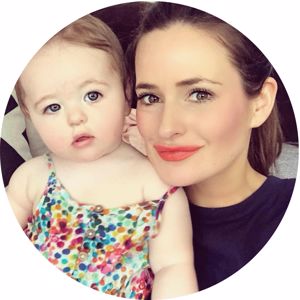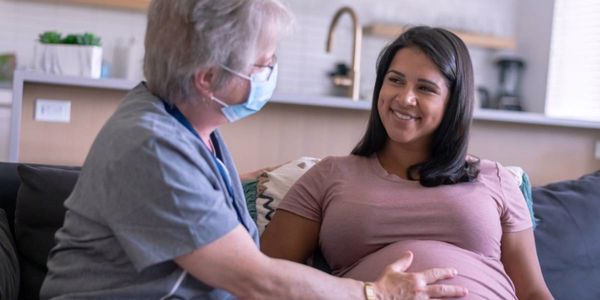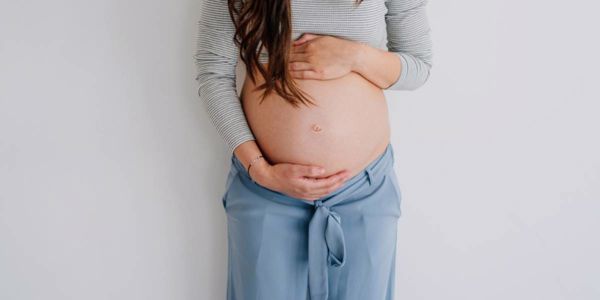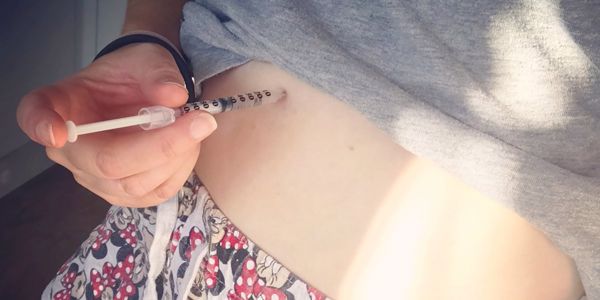If you’re thinking about trying for a baby and wondering how long it will take after coming off contraception to get pregnant, then there are a few things you need to know.
Once you’ve decided to get on that baby train, the thought of waiting months to get a BFP can be really disheartening. Still, it’s important to remember these things can take time.
Getting Pregnant After Birth Control
According to the NHS, most couples will get pregnant within a year if they have regular sex without contraception. More than eight out of ten couples where the woman is under 40 will be pregnant by one year, with more than nine out of ten couples pregnant by two years. Yep, it really can be a time-consuming process.
But what about getting pregnant after you’ve come off the pill, had your coil out, or removed your contraceptive implant? Oh, and let’s not forget what happens after those contraceptive injections.
The time it takes to get pregnant after coming off contraception can vary from person to person. It's important to note that there is no specific guideline on this duration because it depends on various factors. Contraception aside – just for a second, it’s essential to factor in each individual’s overall health, reproductive health and age. Every person’s body is unique.
Lifestyle choices also come into play. We’re talking diet, exercise, stress levels and substance use (such as smoking or excessive alcohol consumption). These things can impact how long it will take you to get pregnant.
Some forms of contraception may have a longer-lasting impact on fertility than others. For example, hormonal contraceptives like birth control pills or injections may take time for your body's natural hormonal balance to return. Let's break it down.
Pregnancy and Coming off the Contraceptive Pill
Around a third of UK women of childbearing age are thought to take the pill. And according to fertility guru Zita West, research proves that you’re actually more fertile immediately after stopping the pill, thanks to a big hormonal push within the body. This may give you a window where you might get lucky. Or not. It definitely didn't happen for me.
The general advice after that is to wait until you self-regulate when your periods return to “normal.”
What’s normal??! I hear your cry. Well, it’s what a typical period/cycle looks like for you. And they can take a little while to return to normal after coming off the pill. Patience, as they say, is a virtue.
What’s the Difference Between the Combined Pill and the Mini Pill?
According to The Royal Women's Hospital, the combined pill contains two hormones and stops the ovaries from releasing an egg each month. The progestogen-only pill (mini pill) has only one hormone and works by changing the mucus at the entrance to the womb (uterus) so that sperm cannot pass through to fertilise the egg.
Combined Pill
As soon as you come off the pill, in theory, you can get pregnant straight away. If you’ve decided to stop taking the combined pill, which is typically taken for 21 days followed by a seven-day pill-free interval with withdrawal bleeding, it’s wise to finish the pack to know when you’ll get your next period. Stopping mid-way through a month could leave you wondering where you are in your cycle, making it hard to predict when you’ll get your period.
Progestogen-only Pill
As the progestogen pill is taken daily without a break, you can stop this pill anytime without finishing the pack you’re on.
With both pills, the NHS advises not trying to get pregnant until after your second period, allowing your body time to get back to its natural cycle. This is because the first period after stopping the pill is a withdrawal bleed.
They make it all sound so simple, but it's worth remembering that irregular periods are normal after stopping hormonal birth control, and in reality, it can take several weeks or sometimes months for periods to resume as usual.
Getting Pregnant After the Coil and Progesterone Implants
According to the NHS, it’s possible to get pregnant as soon as the coil, aka the IUD (intrauterine device), has been taken out. Recent stats from the Institute of Health concluded that the Mean interval from IUD removal to conception was 4.4. months, in a range of 1-18 months. And once your progesterone implant is removed, it’s thought that fertility levels usually return pretty quickly.
Contraceptive injections and getting pregnant
After stopping your injections, your menstrual cycle and fertility may require a little time to return to their usual patterns. In fact, it’s thought this process may take slightly longer compared to other forms of contraception.
When To Have Sex if You’re Trying To Get Pregnant
If you're coming off contraception to get pregnant, it's advised you have regular unprotected sex every two to three days. We were advised to "do it" every day and that turned into a highly stressful situation. Don't put too much pressure on yourselves, but download an app, track what's going on, and give yourselves all the advantages you possibly can.
“Just Relax! And It Will Happen...”
As a virtuoso of the seemingly endless, twisty-turny journey to conceive – complete with the "unexplained infertility" badge of honour and three rounds of IVF later – I'm here with the heads up. You've come off contraception to get pregnant. Nothing's happening.
At some point, some well-meaning family member or friend is going to tell you to "Just relax, and it'll happen," and it's then you might feel an overwhelming urge to scream in their face. Please know that this is a completely normal reaction. "Just relax" is the WORST advice. If you're struggling to get pregnant, you'll know - stress happens.
If you're at the very beginning of your TTC journey, it's time to throw everything at it. Eat well. Sleep well. Look after yourself. Check out Zita West's book Eat Yourself Pregnant for some good recipes, or use your common sense. Cut down on sugar, processed food and alcohol, stop smoking and completely cut out recreational drugs - if that's your thing. Get on decent folate and do this as soon as you can. (Folate is the natural form of vitamin B9 in food, while folic acid is a synthetic form and trickier to absorb.)
TTC and Knowing When To Get Help
We women all understand what's meant by a ticking biological clock, and yep, unfortunately, age does play a significant role in fertility. As you reach your mid-30s, your ability to conceive begins to gradually decline. If you're actively trying to conceive and find yourself worried about how long it's taking, don't delay in getting some advice. Reach out to your GP or a nearby fertility clinic for help.
The NHS has long waiting lists, as we all know, but there will be a private clinic near you that can provide various preliminary tests without necessitating immediate major interventions, so that you can gain a better understanding of what's going on - or for a bit of reassurance.
Good luck, patience and baby dust.







